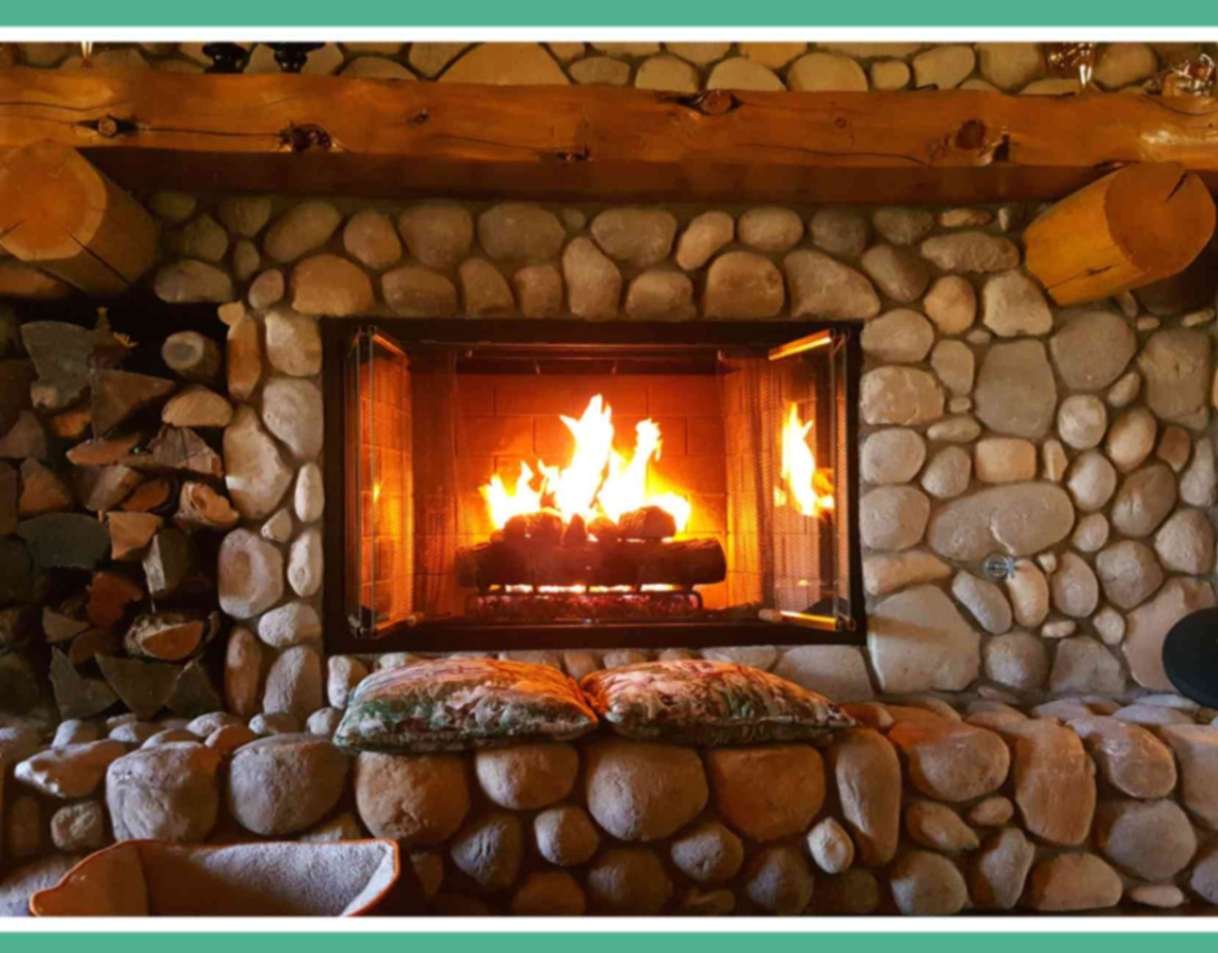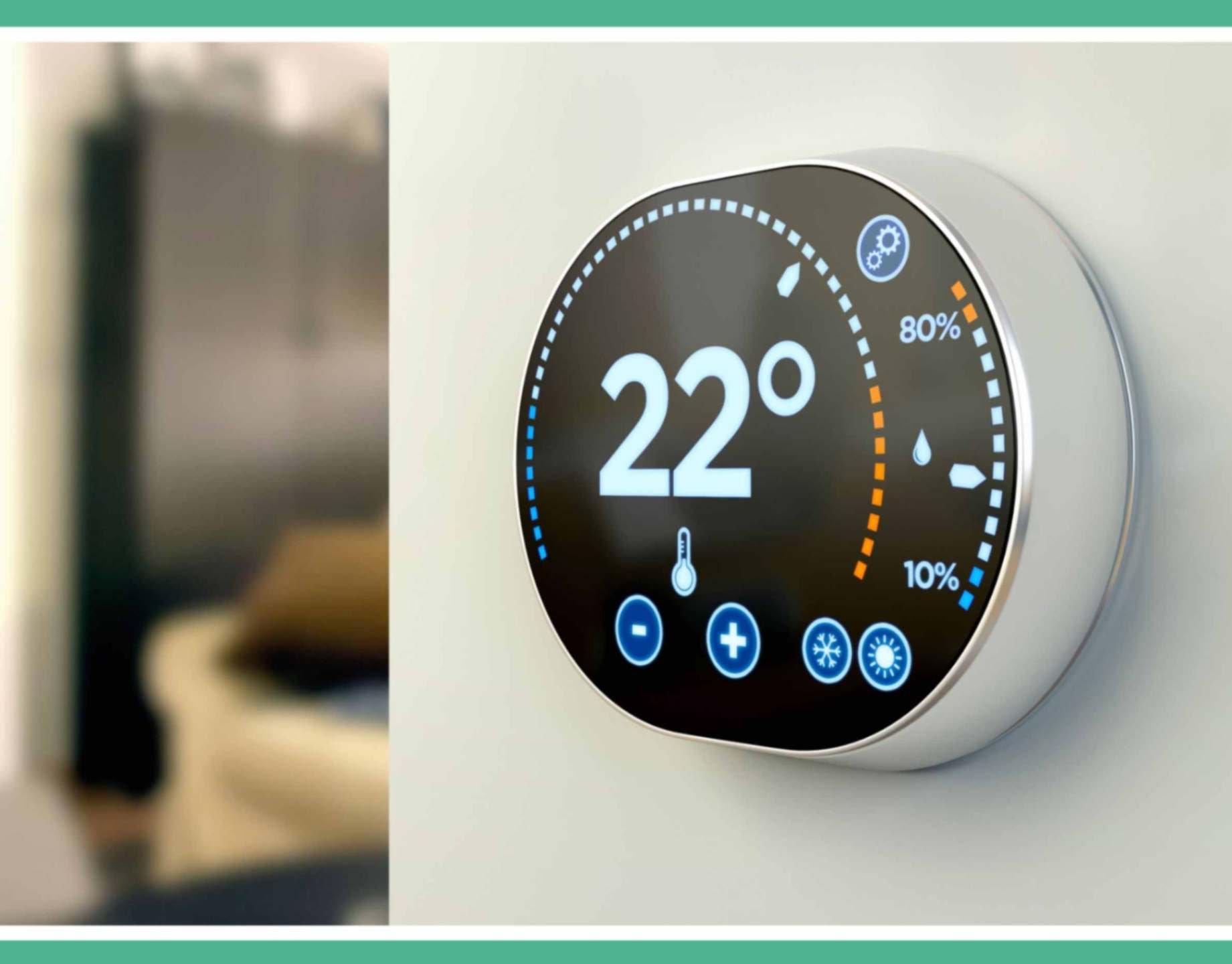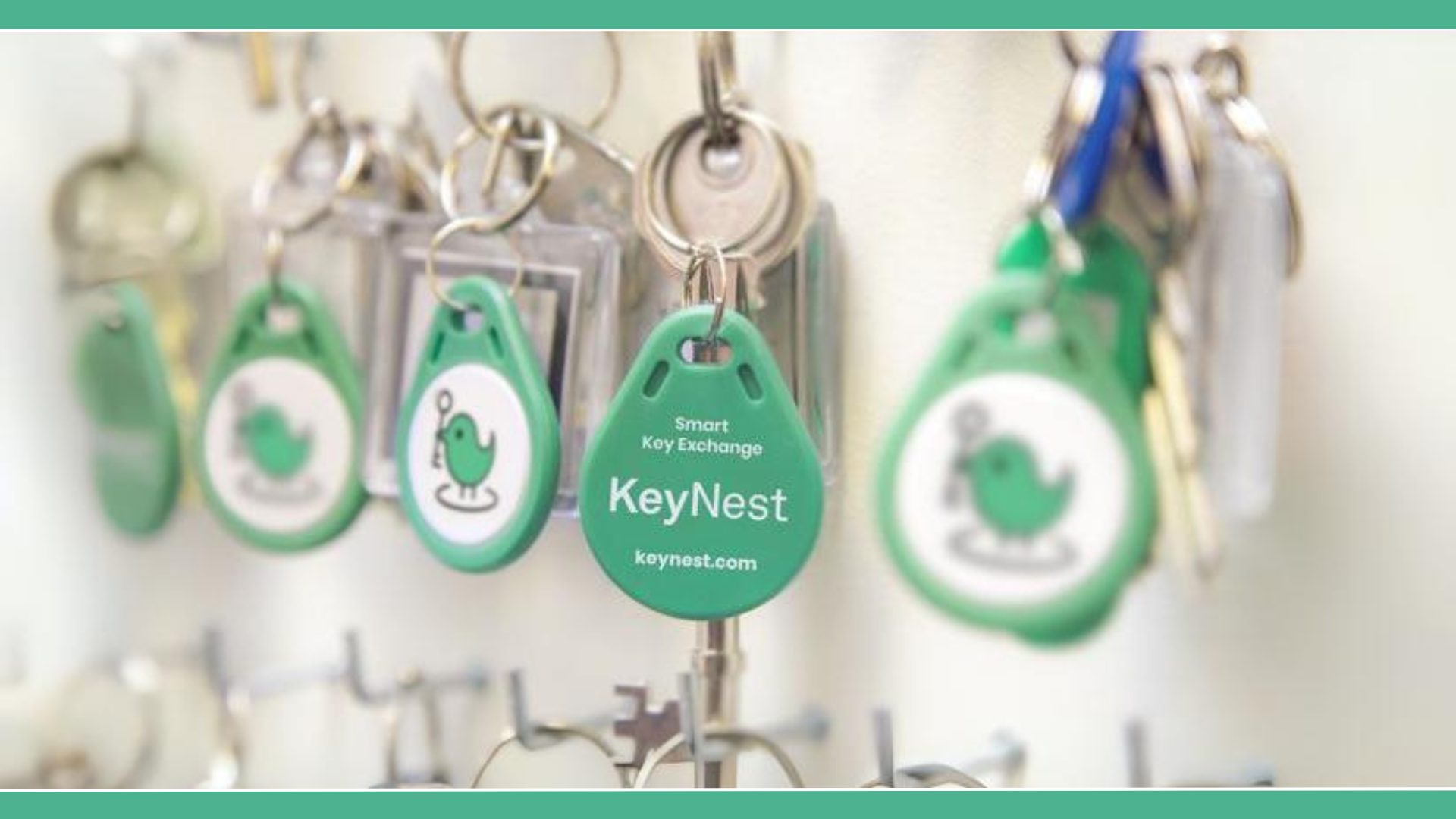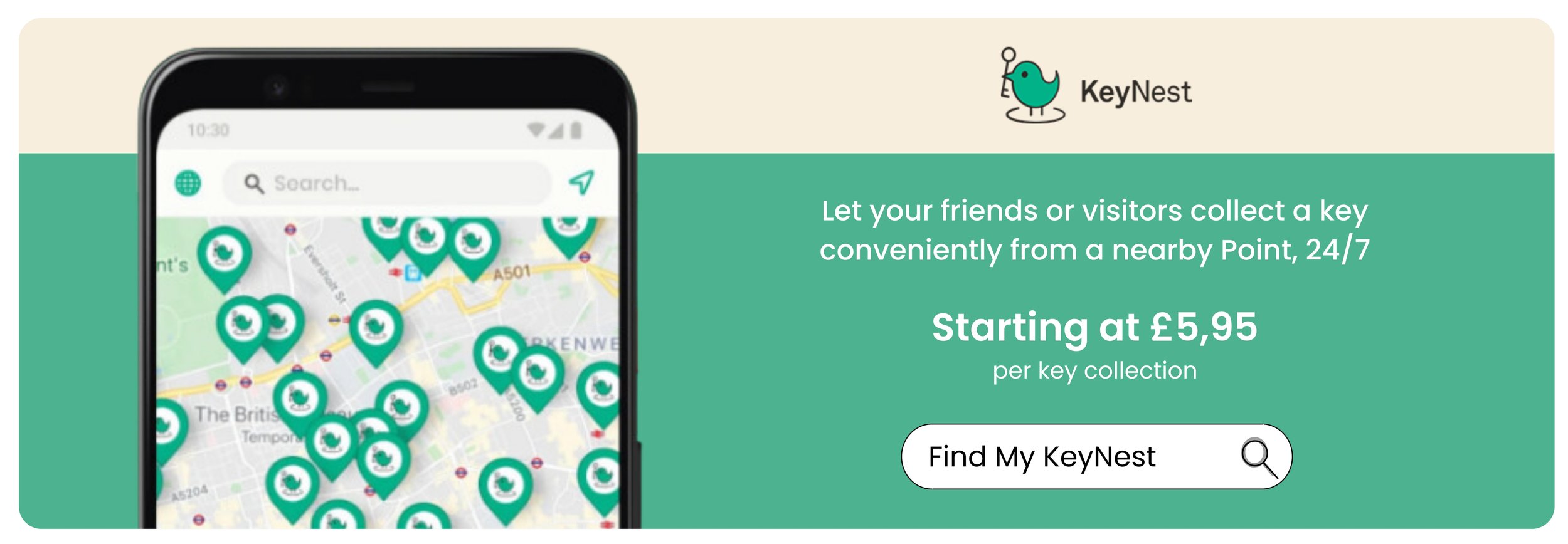Over 1500 key exchange locations nationwide
How To Manage Your Short-Term Rental Bills During The Winter?
Winter should be a magical season but it often comes with a hefty price tag for Airbnb hosts due to increased heating costs. Managing central heating in your Airbnb during colder months can be a balancing act between keeping your tenants comfortable and maintaining an affordable energy bill on your let. With guests coming from various climates, expectations about warmth can vary and a poorly heated vacation rental could lead to bad reviews.
At the same time, overspending on heating at night can cut into your income on your short term vacation rental business. The key is finding a solution amidst inflation that satisfies both your guests and your wallet. Whether it’s optimizing thermostat settings, investing in energy-efficient solutions or setting clear house rules, there are plenty of strategies to consider. Additionally, smart heating systems can give you better control and reduce unnecessary expenses.
In this article, we’ll explore practical tips to manage your accommodation heating while keeping everyone happy in your listing's hospitality. By planning ahead, you can save money and still offer your guests a cozy winter retreat. Let’s dive into how you can manage central heating efficiently this winter season!
Why Winter Heating Control Essential For Airbnb Let Rentals?
Winter heating is a major expense for Airbnb hosts especially in colder climates where heating systems run around the clock. Without proper controls, guests may overuse heating leading to high energy rate that eat into your profits in return. Additionally, consistent and efficient heating is vital for maintaining positive guest travel reviews and nobody wants to stay in a cold or drafty property for their length of stay.
Clear policies around heating usage can help strike the right balance between comfort and cost management. It's also a great opportunity to educate guests on energy-saving practices which benefit both the planet and your wallet. Understanding the importance of heating control during winter sets the foundation for a smoother hosting experience and for your potential guest.
In lieu of this, these are the key points for winter heating control:
Key Points for Heating Control On Your Short-Term Vacation Rental:
Prevent High Bills: Control guest heating usage behaviour to prevent excessive energy consumption and high costs.
Guest Comfort: Ensure guests stay warm while maintaining a balance that doesn’t strain your budget.
Clear Communication: Set clear written expectations about heating in rental platforms including rules on thermostat usage and temperature ranges.
Remote Management: Consider using smart thermostats to effectively control of heating when guests aren’t around.
Sustainable Practices: Encourage different ways of energy-saving habits such as turning down the heat when not in use for cheaper electricity cost.
Efficiency Maintenance: Keep your heating system well-maintained for optimal performance reducing unnecessary strain and energy waste that affects your rental property revenue.
Smart Thermostats: A Game-Changer Discount For Airbnb Hosts
Smart thermostats are one of the best investments you can make for managing heating costs in the hospitality industry. These devices allow you to remotely control and indicate the temperature of your property ensuring the system only runs when necessary.
For example, you can schedule the thermostat to lower the temperature during vacant periods and warm up the property just before tenant's arrival. Many smart thermostats also provide usage analytics, helping you identify inefficiencies and save on energy costs. Some even allow you to set maximum temperature limits to prevent tenants from cranking up the heat excessively.
With the added convenience of app control, you can manage your property’s heating from anywhere in the world. It’s an eco-friendly, cost-effective solution that enhances comfort while protecting your electricity bill.
Setting Guest Expectations For Winter Heating On Your Booking
Setting clear expectations for winter heating is a crucial part of hosting a successful Airbnb stay during the colder months. Tenants may come from various climates and have different perceptions of what "warm and cozy" means, so communication is key.
By providing clear guidelines and practical solutions, you can ensure both guest satisfaction and energy efficiency. When guests understand how to use the heating system and why certain rules are in place, they are more likely to respect your property and its resources for those who may want to make night stays a bit more warmer. Properly managing expectations also helps avoid unnecessary heating costs and potential misunderstandings.
Whether it's through your listing description, house manual, or direct communication, a thoughtful approach won't hurt and goes a long way. Here's a breakdown of important topics to cover when setting guest expectations for winter heating in your Airbnb:
Clear Heating Instructions: Provide guests with a simple guide on how to use the heating systems including thermostat adjustments and what's the operating hours if applicable.
Energy-Efficient Practices: Encourage guests still to conserve energy by turning down the heat when leaving the property or during sleeping hours.
Temperature Guidelines: Specify an ideal minimum and maximum temperature range (e.g., 68–72°F) to maintain comfort without excessive energy use.
House Rules on Heating: Outline policies in your Airbnb listing or house manual such as avoiding drastic thermostat changes due to occupancy or leaving windows open while heating is on.
Provide Cozy Alternatives: Offer extra blankets, throws or space heaters to ensure comfort without solely relying on central external heating.
Address Property Quirks: Inform tenants about potential one or two cold spots, drafty areas or unique features of your property along with solutions like draft stoppers or thermal curtains.
Emergency Contacts: Make registration details of who to contact in case of heating issues such as a repair service or your personal number.
Warm Welcome: As hosts or owners, make a good first impression by pre-heating the property to a comfortable temperature last thing before renters arrive.
Sustainability Note: Highlight eco-friendly efforts, like energy-efficient appliances or sustainable practices, to appeal to environmentally conscious travelers.
Open Communication: Invite guests to reach out if they have heating concerns ensuring their comfort is addressed promptly during their stay.
Insulation And Energy Efficiency Tips Amidst Inflation
Case studies shows that improving your property’s insulation can significantly reduce competitive heating costs that is usually on the rise. Sealing drafts around windows and doors prevents heat from escaping, keeping your Airbnb cozy on a nightly basis while reducing energy waste.
Consider adding thermal curtains or using rugs to retain warmth during the colder months. Upgrading to energy-efficient windows or insulating the attic can also yield long-term savings. Regular maintenance of your heating system can reference that it runs efficiently avoiding unnecessary strain or costly repairs.
Simple measures like changing air filters and cleaning vents can make a noticeable difference. By focusing on energy efficiency, you not only save on bills but also enhance your property’s appeal to eco-conscious guests.
Key Points To Manage Insulation And Increase Energy Price:
Draft Sealing: Ensure windows and doors are properly sealed to retain heat.
Thermal Curtains: Use heavy curtains to trap warmth and block outsourcing cold drafts.
Upgrades: Consider upgrading windows, insulation, and attic spaces to improve overall energy efficiency.
System Maintenance: Regularly service your heating system to ensure it’s running at peak performance.
Efficiency Measures: Replace air filters and clean vents to maintain the system’s efficiency.
Sustainable Options: Choose eco-friendly energy-efficient appliances and systems to reduce overall energy consumption.
Efficient Heating Solutions For Your Short Term Airbnb Listing
Sometimes, heating systems can fail at the worst possible moments leaving your renters in the cold. Having a backup plan for heating emergencies is essential for maintaining guest satisfaction. Portable heaters can be a lifesaver during unexpected breakdowns and they’re relatively inexpensive to keep on hand.
Keeping a list of reliable HVAC technicians or emergency repair services ensures you can address problems quickly. It’s also a good idea to stock extra blankets and provide clear instructions for guests on how to stay warm if the heating system falters temporarily.
Communicate with guests promptly if an issue arises, and offer compensation or alternative solutions if necessary. Planning for emergencies not only protects your property but also safeguards your Airbnb reputation.
Key Points for Emergency Heating During Your Tenant's Length Of Stay:
Backup Heaters: Keep portable heaters as an alternative when the central heating system fails.
Maintenance Contacts: Have reliable HVAC technicians or repair services to depend on during times of emergency on speed dial.
Clear Instructions: Provide guests with emergency contact information and instructions on staying warm.
Extra Blankets: Stock up on blankets and warm items to offer immediate comfort.
Prompt Communication: Notify guests immediately if an issue occurs, and resolve it as quickly as possible.
Compensation Plans: Offer compensation, discounts or alternatives to guests if there’s a significant heating issue.
Contingency Planning: Be prepared for heating failures by having a clear contingency plan in place.
In Retrospect
Managing your Airbnb’s heating bills during the winter doesn’t have to be stressful. By understanding your heating costs and investing in smart technology, you can create a cozy environment for guests without overspending. Clear communication and realistic expectations help guests feel comfortable while respecting your efforts to save energy.
Focusing on insulation and energy efficiency adds long-term value to your property and reduces reliance on expensive heating solutions. Having an emergency plan ensures you’re prepared for unexpected issues, minimizing disruptions to guest stays. As a host, striking a balance between guest comfort and cost management is key to maintaining a successful Airbnb in the colder months.
With thoughtful planning and a few strategic upgrades, you can enjoy a stress-free winter season while keeping both your tenants and wallet happy. Remember, a warm and inviting space will always leave a lasting impression on your visitors, leading to glowing reviews and repeat bookings.
About Us: KeyNest
It is vital for any hosts to sustain an efficient key management access to ensure your listing gets maintained in the Airbnb platform. That is why KeyNest, a leading smart key exchange service, is designed to simplify and secure the management of property access for hosts, property managers, and guests. With a network of thousands of partner locations worldwide, KeyNest ensures that keys are safely stored and easily accessible 24/7, providing a seamless solution for short-term rental hosts, including those on platforms like Airbnb.
Since its inception, KeyNest has revolutionized how property access is handled, eliminating the need for in-person handovers and providing an efficient alternative to traditional lockboxes or smart locks. Trusted by property managers across the globe, KeyNest's robust system ensures keys are always secure while maintaining accessibility.
Want to know more about KeyNest?
KeyNest offers you a convenient service for storing and exchanging your property keys. You can drop off a key at any of the 7,000+ locations in our network, so there’s one such Point located next to your property.
Guests, cleaners or contractors can then collect the key securely from a KeyNest Point or KeyNest Locker which is usually open 24/7. You'll be notified each time the key is picked up or returned, and you can even customize check-in and check-out times. By leveraging technology and a global network of locations, KeyNest continues to redefine property management, offering solutions tailored to meet the evolving needs of the rental market..
KeyNest has an ever-expanding global network of locations located just minutes from your property. To find out more you can contact us.
Neil Beltran 10 December 2024





